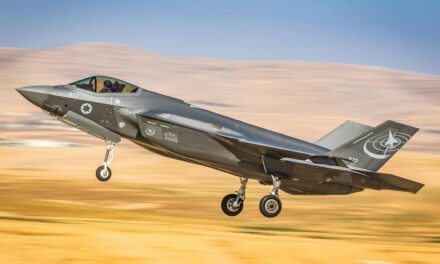We support our Publishers and Content Creators. You can view this story on their website by CLICKING HERE.
Russia is turning to the cryptocurrency industry to moderate the impact of the ever-tightening US sanctions regime. Starting on November 1, an industry-friendly law enabled the expansion of “mining” operations and facilitated the use of crypto for international transactions.
Why? Russia is accelerating its crypto mining because, like anyone else who uses crypto, it wants to purchase illicit goods. Russia has been heavily sanctioned for its aggressive behavior since 2014, a process that accelerated with Russia’s full-scale invasion of Ukraine in February 2022. Your nephew may use crypto to buy weed; Russia uses it to buy computer chips, machine tools, and luxury goods.
Russia’s basic financial problem is that it cannot easily use its dollars to buy the things that it wants. US restrictions on financial transactions and US financial surveillance mean that Russia’s transaction partners run the risk of secondary sanctions if they deal with Russia. For many firms and countries, even lucrative deals with Russia aren’t worth the trouble of increased US scrutiny and the possibility of losing access to the US market and to the US-led global financial system.
And yet Russia must purchase goods from abroad. Foreign goods play two critical roles in Russia’s war effort. First and foremost, illicit trade brings in chips, machine tools, and other equipment that Russia needs in order to ensure that its defense industrial base keeps cranking out ammunition and equipment. Second, illicit trading allows Russia’s elite (and, to some degree, its middle class) to enjoy luxury goods and the lifestyle to which they have become accustomed, ensuring that domestic opposition to the war remains piecemeal and ineffective.
The new legislation gives the Russian government (particularly Russia’s Central Bank) greater latitude to monitor and support the transfer, mining, and operation of crypto-currency producers within the country. It also builds a foundation for a digital reintroduction of the ruble, which will reassert the Russian government’s capacity for monitoring domestic financial transactions. Overall, the legislation is wonderful news for Russia’s crypto industry and even for its energy sector, which will benefit from crypto-miners’ immense power needs.
Russia shares this enthusiasm for crypto with the increasing right-wing collection of tech-industry oligarchs who have collected around Elon Musk, a group that itself has become increasingly sympathetic to Russian war aims.
There are, of course, risks. Russia has traditionally taken great care with the crypto-currency industry, as tolerating the sector has meant allowing Russian citizens considerably greater latitude concerning their ability to buy and sell products. Technologies that allow individuals to escape surveillance and control have rarely been welcome in the Russian political context. However, the Putin government has determined, in part out of desperation, that the benefits outweigh the risks.
Will it work? Probably not. Crypto transactions are almost comically easy for advanced financial investigators to detect. Thus, the businesses and organizations that will accept crypto in order to avoid US secondary sanctions will quickly find themselves under scrutiny and subject to action.
Moreover, crypto markets are insufficiently liquid to handle Russia’s level of trade. New crypto innovations will likely buy Russia time and space to conduct a certain level of transaction, but it is unlikely that they will transform Russia’s financial circumstances or allow it to return to international markets in a major way.
Ukraine Tank Attack
What Happens Now?
War in the finance domain is just like war in every other domain; it involves tactical and strategic advances and retreats as the combatants evaluate techniques to protect themselves best and damage their opponents. The United States and its allies continue to tighten the net around Russian finance carefully, creating ever more difficult problems for moving money out and moving critical goods in. Russia continues to sort through ways of escaping that net.
In this sense, the turn to crypto is no different than the development of a new air defense missile or a new kind of drone. The battle may not be equal (time will tell whether Russia can keep its financial system afloat), but like any other battle, it involves a strategic push-pull to overcome and disarm the opponent.
About the Author: Dr. Robert Farley
Dr. Robert Farley has taught security and diplomacy courses at the Patterson School since 2005. He received his BS from the University of Oregon in 1997, and his Ph. D. from the University of Washington in 2004. Dr. Farley is the author of Grounded: The Case for Abolishing the United States Air Force (University Press of Kentucky, 2014), the Battleship Book (Wildside, 2016), Patents for Power: Intellectual Property Law and the Diffusion of Military Technology (University of Chicago, 2020), and most recently Waging War with Gold: National Security and the Finance Domain Across the Ages (Lynne Rienner, 2023). He has contributed extensively to a number of journals and magazines, including the National Interest, the Diplomat: APAC, World Politics Review, and the American Prospect. Dr. Farley is also a founder and senior editor of Lawyers, Guns and Money.

 Conservative
Conservative  Search
Search Trending
Trending Current News
Current News 





